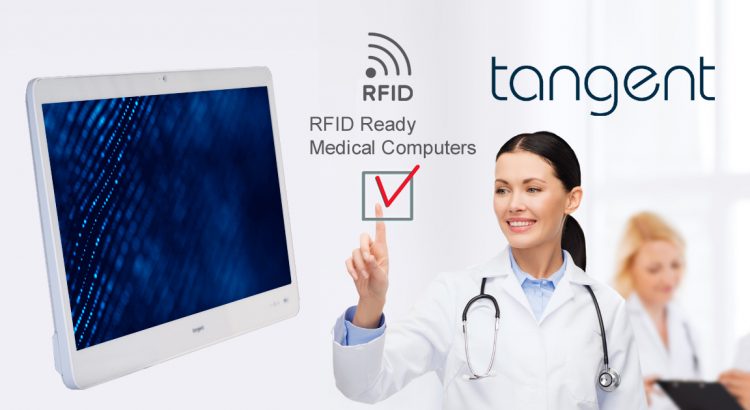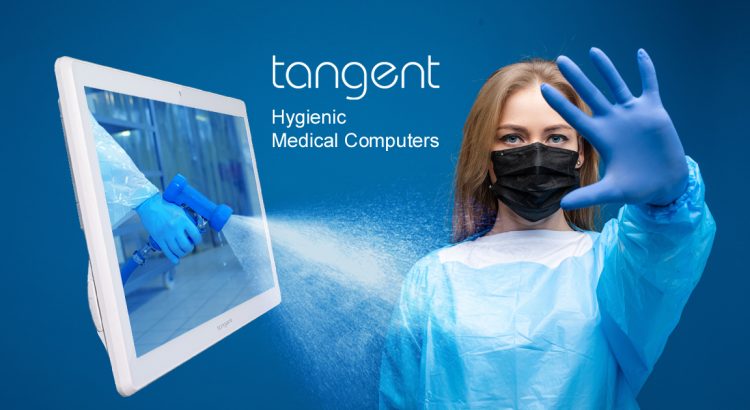In healthcare settings, computers are central to managing patient data, diagnostics, imaging, and daily workflows. Doctors and healthcare professionals rely on specialized medical-grade computers, all-in-one (AIO) systems, and tablets designed to meet the stringent demands of medical environments. These devices need to perform seamlessly, adhere to regulatory standards, and often withstand rigorous sterilization processes to […]
Author: Tangent Writing Team

RFID Ready Medical Computers
What Is RFID? RFID stands for Radio-Frequency Identification. The technology standard is made up of RFID tags and readers. These tags have small radio receivers and transmitters inside them. When in contact with a reader, the tag will respond and transmit information it is carrying to the reader. These tags can be used for a […]

Hygienic Medical Computers
Cleanliness remains a top priority for hospitals everywhere. Since the introduction of handwashing into the medical field, efforts to curb disease spread in the hospital have been largely successful. Still, medical institutions must remain vigilant in their hygienic practices to ensure that the risks to patients are minimized. Hospitals need quality medical computers that help […]

Telemedicine With Medical Computers In A Post-Pandemic World
The last year has been a challenging one for many hospitals. The pandemic strained resources and personnel throughout the winter. But things are beginning to turn around, thanks in part to the widespread availability of vaccines. As hospitals exit the pandemic, they must turn their sights back towards helping everyday patients. The lessons learned in […]
Medical Computers
What are medical computers?
